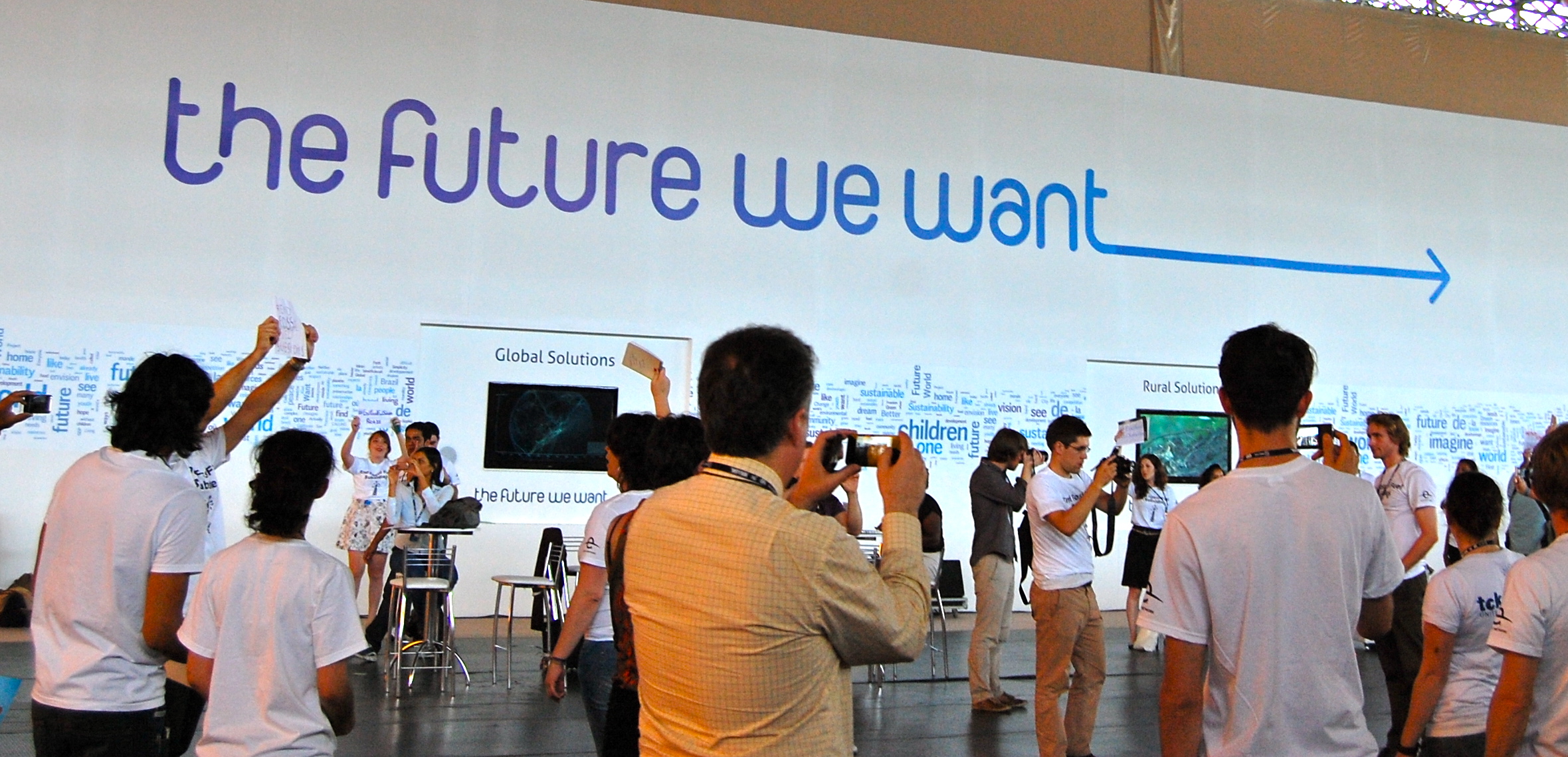Rio: More than Beaches and Diplomats
By
Ellie Johnston
June 20, 2012
 Credit: Ellie Johnston
Credit: Ellie Johnston
While the negotiations for Rio+20 progressed, Drew and Travis of Climate Interactive were sharing analysis and facilitating a group that is exploring pathways to break through the climate impasse at the Rio Climate Challenge. This event, part conference, part workshop, went beyond a typical conference speaker series with hundreds of audience members listening to experts who drop in for their part and then scoot off to the next thing. The Rio Climate Challenge included a plenary hall where audience members hear from leaders in different areas of climate, like from Yvo de Boer, the former secretariat of the UN climate change negotiations. The unique part of this event was that speakers when not on stage are working together in a small group to develop a set of recommendations for the climate change negotiations and Rio+20.
While Drew and Travis were tackling the climate angle, I was keeping an eye on the larger movements of the Rio+20 conference at RioCentro. In the next day or so, we will see the latest iteration of what the world’s countries can produce together to address our global challenges. So far, the text appears weakened as decades-long national positions and conflicting opinions are not budging.
The story being told by civil society—and many negotiators as well—is that the negotiations are only part of the narrative here in Rio. Just as important are the events that Drew and Travis were leading, which are developing our understanding of these complex challenges and the creative ways we can move in spite of multi-lateral negotiations that don’t deliver the outcomes we desire.
A third element of Rio, which the US State Department is emphasizing, is national commitments. We have seen the shift towards national commitments in the climate negotiations, for better or worse. Climate Interactive has worked to keep tabs on whether these commitments add-up to the action we need—they don’t. Because Rio+20 covers the umbrella of “sustainable development,” the ability to determine whether the commitments nations are putting forward will be enough to develop a truly green economy and improve international environmental governance (the two themes of the conference), is uncertain. Here in Rio, the State Department is announcing national commitments to work with other nations to monitor ocean acidification and connect collections of small urban planning projects to financing. As things wrap up we realize, like all meetings it is not so much the outcome document and the conversations but the follow-up action that makes a difference. For our children’s future let’s hope for the highest level of action beyond Rio.

